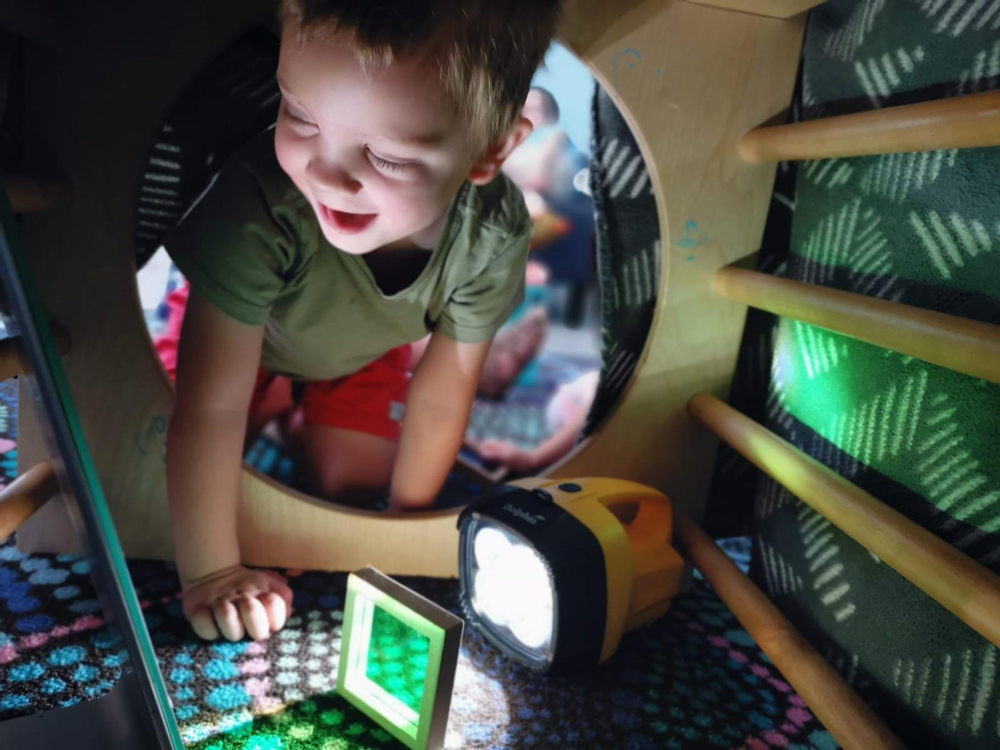Our Curriculum:A Foundation for Lifelong Learning
Our curriculum is designed to honour children’s natural curiosity while preparing them with the skills they need to thrive in primary school and beyond. Guided by the Early Years Learning Framework (EYLF), our educational program blends play-based learning with intentional teaching to build essential knowledge, independence, and confidence.
We recognise that school readiness is not a one-size-fits-all checklist. It is a holistic process that includes emotional wellbeing, social confidence, and cognitive growth. At Lidcombe Childcare and Preschool, we intentionally embed academic concepts and school readiness into our everyday learning environments—without compromising the importance of play, relationships, and autonomy.

Our School Readiness Approach
What Does School Readiness Look Like?
Our approach to school readiness goes beyond pencil grips and worksheets. Instead, we nurture the whole child, preparing them for the academic, emotional, and social demands of formal schooling.
At Lidcombe Montessori Childcare & Preschool, we proudly blend Montessori principles with play-based learning theory to create a rich, child-centred environment. As a Montessori-inspired service, we integrate hands-on materials, purposeful play, and opportunities for independence throughout our learning spaces. This approach nurtures each child’s ability to concentrate, self-direct, and build foundational academic understanding through meaningful, real-world experiences that are guided by both structured Montessori practices and the spontaneity of play.
In our Senior Preschool room, children participate in the PreLit program — an evidence-based early literacy program developed by Macquarie University. It supports phonological awareness and oral language through structured, engaging experiences that lay the groundwork for confident reading and writing in school.

Early Literacy and Numeracy
Children are introduced to literacy and numeracy through meaningful experiences—such as storytelling, mark-making, counting games, puzzles, and measuring during cooking or construction. These moments build pre-reading and number sense in a way that is enjoyable and developmentally appropriate. Children learn through context, curiosity, and play—allowing them to develop early academic foundations in a joyful, stress-free environment.
Self-Regulation and Confidence
We focus on helping children identify their emotions, solve problems, and make thoughtful decisions. These skills are supported through peer interactions, guided group times, and mindfulness practices such as breathing or reflection. In doing so, we build emotional resilience and support children to approach challenges with confidence and calm.
Independence and Self-Help Skills
From packing their own bags to managing transitions and following routines, children are supported to take ownership of their day. Educators model and guide these moments, allowing children to build confidence in their abilities. These small, everyday acts help children develop responsibility, pride, and self-reliance.
Group Learning and Social Collaboration
Children engage in small and large group experiences that mimic some of the routines and expectations of school—such as sitting in circle time, working in teams, and contributing to shared discussions—while still being guided by their interests. These experiences support turn-taking, negotiation, and group awareness, which are essential for a successful transition to school.
Language, Literacy and Communication
Children explore language through storytelling, conversation, music, and dramatic play—laying a strong foundation for reading and writing. Educators model rich vocabulary and responsive dialogue, helping children build confidence in expressing themselves and understanding others. These communication skills support all other areas of learning and development.
Thinking and Problem-Solving
Through open-ended projects and collaborative play, children develop critical thinking and reasoning skills that prepare them for lifelong learning. Whether it’s building, experimenting, or imagining, children are encouraged to ask questions, make connections, and reflect on their discoveries.
By having all of these fundamental key elements, the children at Lidcombe Childcare & Preschool are able to be active world Discoverers, Explores and Inventors through their own ideas and opinions.
Empowering Early Learners
Nursery
(Ages 0-1.5 years)
Our Nursery program provides a safe, nurturing space where babies an
d toddlers can explore, grow, and feel at home as they take their first steps in learning.
Toddlers
(Ages 1.5-2.5 years)
we provide a nurturing, play-based environment where young children feel secure, build independence, and develop key skills—laying the foundation for a confident move into Preschool.
Junior Preschool
(Ages 2.5-3.5 years)
For children aged 2.5 to 3.5, our Junior Preschool program supports growing independence, social skills, and early learning through play and guided experiences.
Senior Preschool
(Ages 3.5-6 years)
Our Preschool program (3.5–6 years) supports school readiness through play, exploration, and skill-building—helping children grow in confidence and independence.
